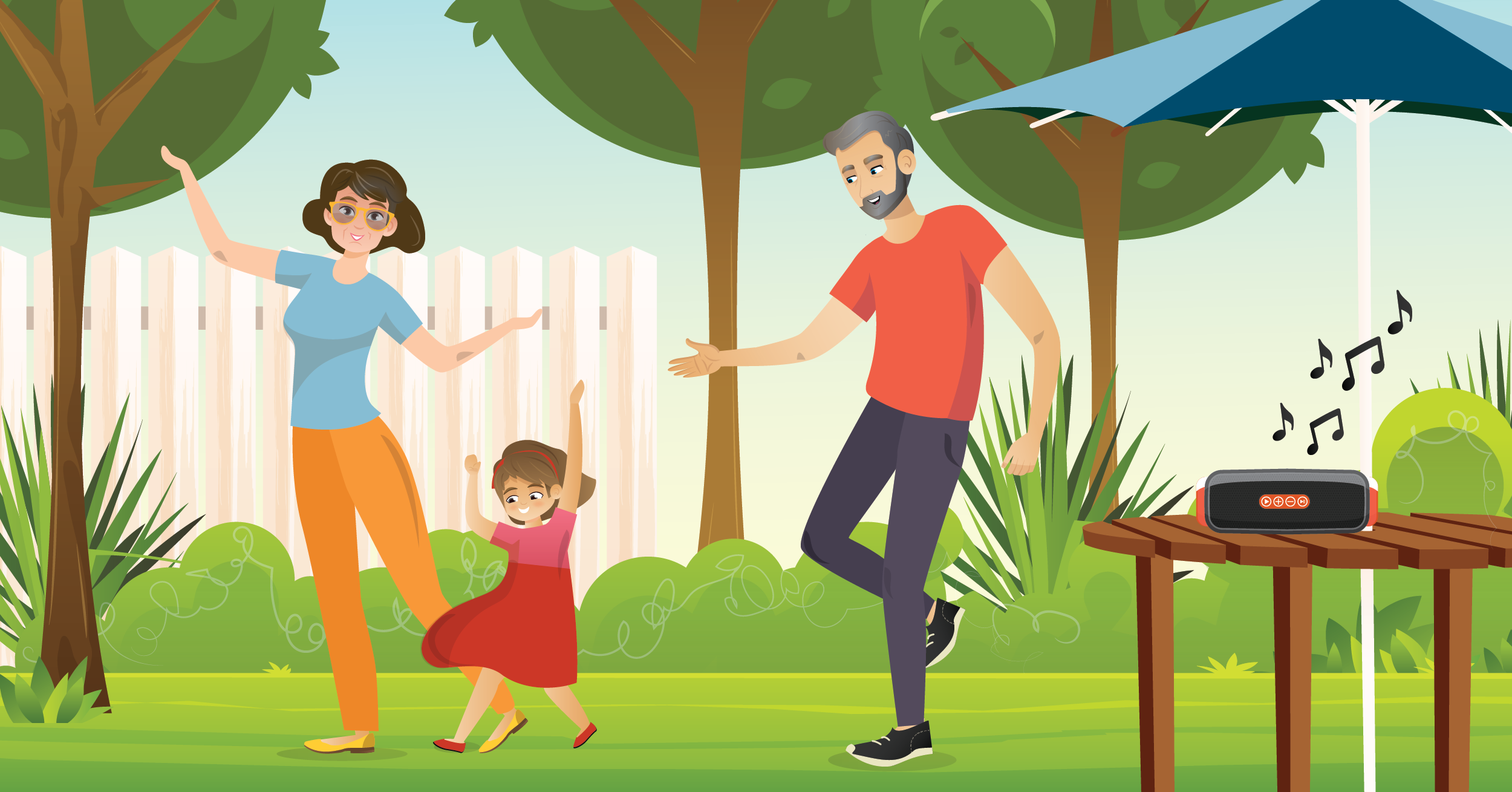What happens to us appears to be less important than what we think and do when it comes to growing happier. Which strategies will you try?
Learn to notice- Savor the good: A common exercise is to end your day by thinking of three good things. The act of searching the day’s events for the positive gets your neural connections going.
- Express gratitude: Try sharing a weekly text with a gratitude buddy. Write or call and thank someone who did something meaningful for you.
- Build mindful awareness: Explore mindfulness practices. A good resource is: UCLA Mindful Awareness Research Center1
Embrace qualities of happy people- Be curious: It can be hard to get out of your ruts. Put your goal in writing. One new thing I could try is:
- Commit acts of kindness: Challenge yourself to not let a week go by without at least one act of kindness – big or small.
- Give and get forgiveness: Apologize and ask for forgiveness if you’ve wronged someone. Offer forgiveness as a gift to someone who has wronged you. Include yourself on the list.
- Get moving! Let the knowledge that physical exercise can make you happier as well as healthier propel you. Try for at least 30 minutes per day. If you already exercise regularly, experiment with new forms or venues.
| My Happiness Action PlanList three things you would like to do to boost your happiness.
|
Strengthen core attributes- Have purpose: Re-up on your sense of purpose by bringing it into sharper focus. Look back – what were your goals and dreams when you were a child? When you graduated? Started your first job? Now look forward – what does a happy life ten years from now look like?
- Be connected: Don’t let relationships be an afterthought. Enrich the connections you have – make time for them, listen, express your feelings, open your heart. And be open to letting new relationships into your life – join clubs, reconnect with old friends, take the initiative to deepen connections with acquaintances.
- Live your authentic self: Think of the various roles that you play on a daily basis. In which areas are you the least authentic? The most authentic? Take a look at which roles cause you the most discomfort or disconnect. How could you begin being more authentic in those roles?
Try tricky tricks- Fake it to make it: Putting on a big grin isn’t necessarily going to cue your brain that you’re happy. But forming your mouth into a gentle half smile conveys a sense of peace that your brain can pick up on. Try one to start your day or when feeling stressed.
- Trigger transmitters: Hug the people you care about. Find reasons to laugh. Line up small goals and give yourself a pat on the back when you accomplish them.
- Spend time with Mother Nature: Find reasons to be outdoors. Aim for 20 minutes per day. If it’s not possible, imagine yourself in a pleasant outdoor scene.
- Get your ZZZZZs! Challenge yourself to get 7-8 hours of sleep per night for one week. Notice your mood and how you feel at the end of that week. Could you make it a habit? Going to bed and getting up at the same time each day (including weekends) can help.
| Change thought patterns- Stop comparing: Take an occasional social media vacation. Notice how you feel when you do. If you still find yourself caught up in negative comparisons, try using gratitude as a be-glad-with-what-you-have antidote. Shift your thought from what you lack to what you have. “I don’t have a new car, but I have…”
- Admire without desiring: It’s easy to tip from “like” into “want.” But wanting can push you away from happiness. If “want” urges take over, experiment with shifting your focus to be in the present and just enjoying the experience for what it is.
- Challenge pessimism: Next time you experience a negative event and leap to the conclusion that you are at fault, or it’s going to affect your whole life, or it’s impossible to change, ask yourself three questions: 1.Cause: What do the facts say? 2. Effect: Are alternative outcomes possible? 3. Response: What action can I take for a better outcome?
- Practice flexibility: Practice letting things go and letting others have their way. Think about things from others’ points of view. Experiment with new approaches to old habits. Think of yourself as someone who can adapt, and remind yourself of times that you have done so successfully in the past.
|
1Mindfulness Meditations created by Diana Winston for the UCLA Mindful Awareness Research Center (MARC). © 2021 The Regents of the University of California. All Rights Reserved.
Any reference to the products, services, information or websites of any other non-Cigna affiliated entity is provided for informational purposes only and should not be construed as an endorsement by Cigna of the products, services, information, or websites of such entities, nor should such reference be construed as an endorsement by such entities of the products, services, information or websites of Cigna and/or its affiliates. Cigna neither reviews nor controls the content and accuracy of these references or websites, and therefore will not be responsible for their content and accuracy. Your access to non-Cigna web sites is at your sole risk.
All Cigna products and services are provided exclusively by or through operating subsidiaries of Cigna Corporation. Use and distribution limited solely to authorized personnel. 880898b 06/21 © 2021 Cigna
